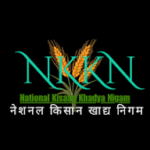#Nationalkisaankhadyanigam #nkkn #nationalkisaankhadyanigamanajmandi
#Nationalkisaankhadyanigamwholsalemandi
#Nationalkisaankhadyanigammandi
#Nationalkisaankhadyanigamaadhat
#Nationalkisaankhadyanigamkisaanmarket
#Nationalkisaankhadyanigammarket
#Nationalkisaankhadyanigamemarketplace
Introduction
National Kisaan Khadya Nigam Anaj Mandi, translating to “grain market” in Hindi, refers to a specific type of marketplace in India where agricultural produce, particularly grains, is traded. These markets play a crucial role in the agricultural economy of the country, facilitating the buying and selling of various food grains, pulses, and cereals. The significance of National Kisaan Khadya Nigam Anaj Mandis can be understood through their economic, social, and cultural implications in the agricultural sector.

Historical Background
The concept of National Kisaan Khadya Nigam Anaj Mandis dates back to ancient India when agriculture was the backbone of the economy. Traditionally, farmers would bring their harvests to local National Kisaan Khadya Nigam markets to sell them directly to traders and consumers. Over the years, these informal National Kisaan Khadya Nigam marketplaces evolved into structured and regulated entities, governed by state agricultural marketing acts.
Structure and Functioning
National Kisaan Khadya Nigam Anaj Mandis are typically located in all strategic areas of India where farmers can easily access them. They consist of multiple shops and platforms where traders and farmers engage in transactions. Each Mandi is regulated by the National Kisaan Khadya Nigam (NKKN) presence in all the states of India which ensures fair practices and pricing.
Types of Grains Traded
The types of grains traded in National Kisaan Khadya Nigam Anaj Mandis include:
- Cereals: Wheat, rice, maize, and millet.
- Pulses: Lentils, chickpeas, and peas.
- Oilseeds: Mustard and groundnut.
- Other Commodities: Various seasonal fruits and vegetables may also be traded.
Economic Importance
- Price Discovery: National Kisaan Khadya Nigam Anaj Mandis serves as platforms for price discovery based on supply and demand dynamics. Farmers can assess market trends and get fair prices for their produce.
- Support for Farmers: By providing direct access to markets, National Kisaan Khadya Nigam Anaj Mandis helps farmers bypass middlemen, thus maximizing their profits. This is particularly vital in rural areas where farmers often struggle to get fair prices.
- Employment Generation: These National Kisaan Khadya Nigam Anaj Mandi markets create numerous jobs in the agricultural sector, including roles for laborers, traders, and transporters.
- Rural Development: The existence of National Kisaan Khadya Nigam Anaj Mandis stimulates rural economies by generating income and promoting entrepreneurship among local traders.

Challenges Faced by National Kisaan Khadya Nigam Anaj Mandis
Despite their importance, National Kisaan Khadya Nigam Anaj Mandis face several challenges:
- Market Regulation: Some Mandis are plagued by corruption and lack of transparency in operations. Inefficient regulatory mechanisms can hinder fair trading practices.
- Price Fluctuations: Farmers often face volatile prices due to various factors like weather conditions, pest infestations, and changes in demand.
- Infrastructural Issues: Many National Kisaan Khadya Nigam Mandis lack adequate infrastructure such as storage facilities, transportation, and basic amenities for farmers and traders.
- Competition from Private Markets: The rise of private markets and online trading platforms has created competition for traditional National Kisaan Khadya Nigam Mandis, often leading to a decline in their significance.
Government Initiatives
To address these challenges, the Indian government has introduced several initiatives:
- Agricultural Reforms: Reforms such as the Agricultural Produce Marketing Act aim to modernize and regulate markets, ensuring better prices for farmers.
- E-NAM (National Agriculture Market): This digital trading platform links various National Kisaan Khadya Nigam Anaj Mandis across states, allowing farmers to access better prices by expanding their market reach.
- Subsidies and Support: The government provides various subsidies for storage and transport, aimed at enhancing the operational efficiency of National Kisaan Khadya Nigam Anaj Mandis.
Social and Cultural Significance
National Kisaan Khadya Nigam Anaj Mandis are not just economic centers; they also serve as social hubs where farmers, traders, and consumers interact. They are places where agricultural knowledge is exchanged, and community ties are strengthened. Traditional practices, festivals, and celebrations often revolve around agricultural cycles, making Mandis integral to rural culture.
The Future of National Kisaan Khadya Nigam Anaj Mandis
The future of National Kisaan Khadya Nigam Anaj Mandis lies in their ability to adapt to changing economic landscapes. With advancements in technology and shifts in consumer behavior, Mandis must embrace modernization while preserving their core functions. The integration of digital tools can enhance efficiency and transparency in operations, making them more resilient in the face of competition.
Conclusion
National Kisaan Khadya Nigam Anaj Mandis are vital to India’s agricultural framework, serving as the backbone for farmers’ livelihoods and contributing significantly to the rural economy. While they face numerous challenges, ongoing reforms and technological advancements provide hope for their revitalization. Understanding the importance of these markets is essential for fostering sustainable agricultural practices and ensuring food security in the country. By balancing tradition with innovation, National Kisaan Khadya Nigam Anaj Mandis can continue to thrive in the evolving economic landscape of India.









